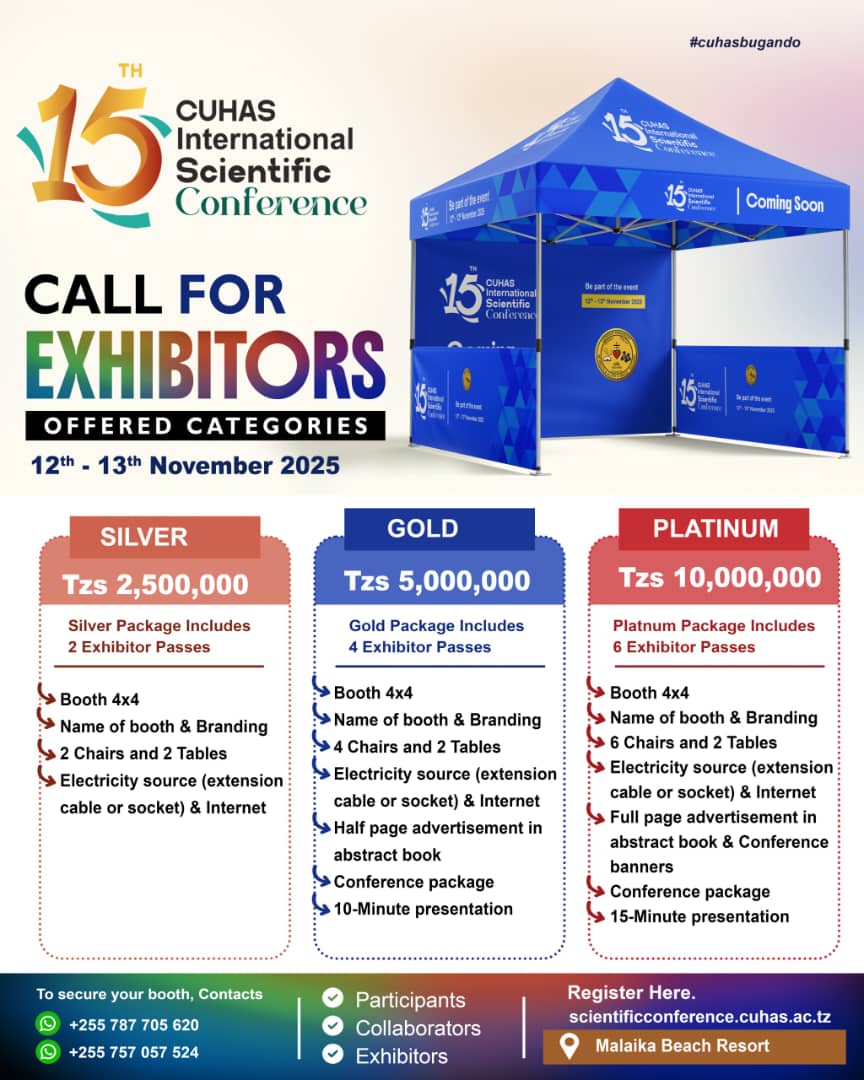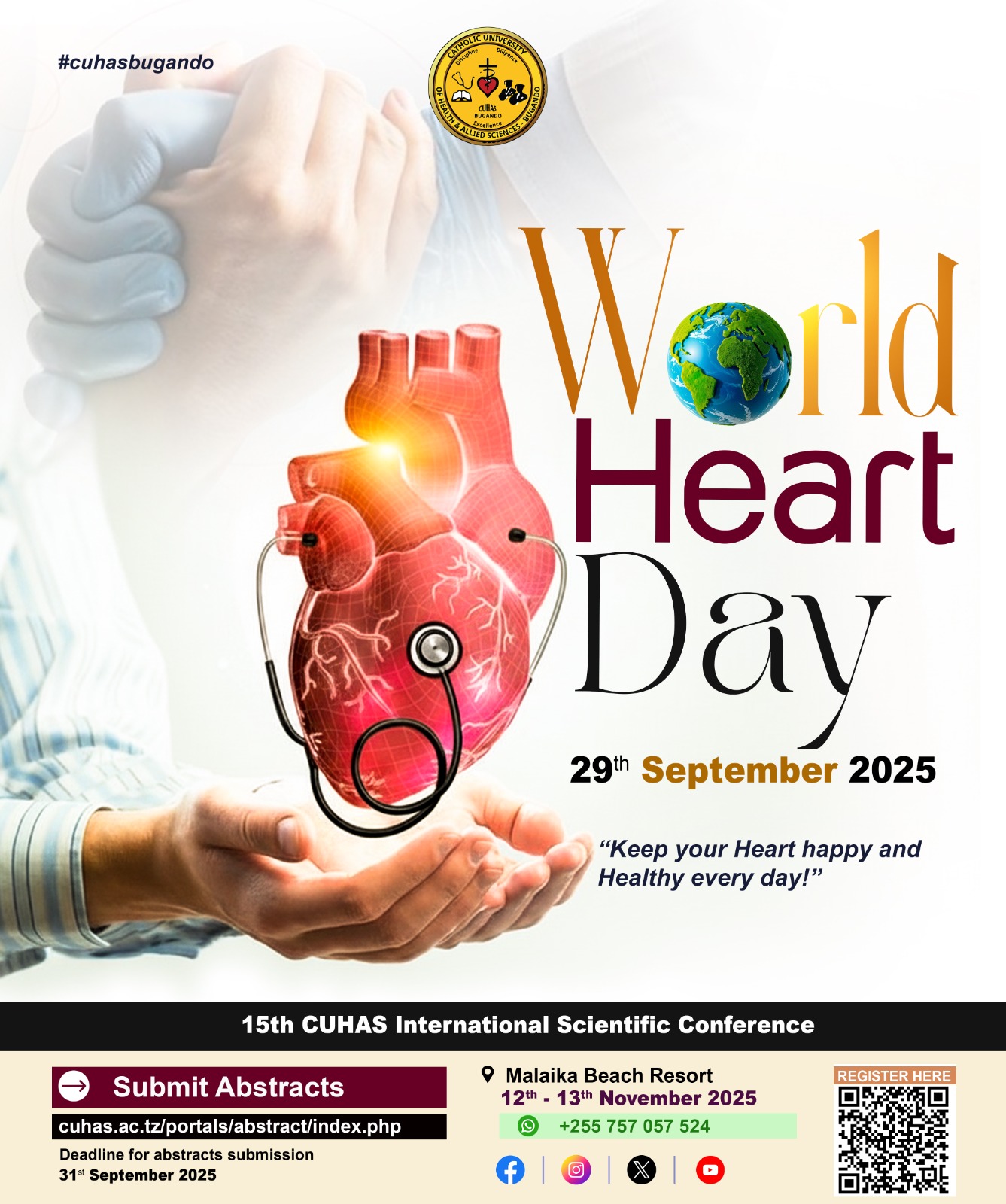Directorate of Research & Innovation
Research is one of the core functions of CUHAS. This is embodied within the mission of the institution in which the University pledges to be
“a centre of excellence providing high quality education, research and services in the field of health sciences”.
Research in an institution of higher learning, such as CUHAS, serves many purposes that relate to training, service provision, and human resource development.
The award system for research accomplishments has been revised and improved. All academic staff and students are required to participate in research activities at various levels of their training and professional careers.
The Directorate of Research and Publication was established to promote and oversee research activities at the University. It is headed by a Director who chairs the joint CUHAS/Bugando Medical Centre (BMC) Research Ethics and Review Committee—composed of 17 members representing different disciplines and sectors.
The Committee reviews all research proposals for CUHAS and BMC, ensuring they align with national guidelines and the Joint CUHAS/BMC Research Policy (2011, revised 2015). It also coordinates the annual Graduation Scientific Conference.
The University’s Research Policy guides researchers on services, procedures, project management, and ethical conduct. CUHAS focuses on research projects that address local, national, and global health challenges while aligning with national objectives.
Research
Advancing health sciences through impactful research that addresses local and global health challenges.
Innovations
Fostering creativity and technology-driven solutions to improve education, healthcare, and community well-being.
Consultancy
Providing expert guidance and advisory services to improve organizational performance.
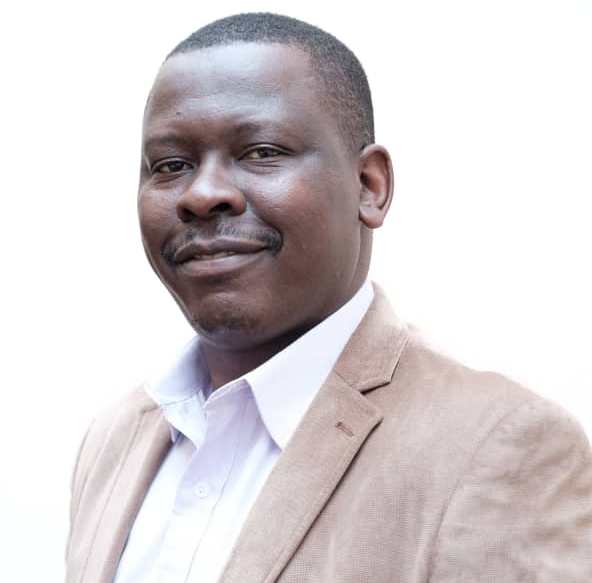
Director of Research & Innovation
Prof. Jeremiah Seni
Prof. Seni has over 15 years of clinical, research and leadership experience in the fields of Microbiology, Infectious Diseases and Global Health, with specific focuses on establishing IPC, AMS and AMR Surveillance systems; and mitigating epidemics, pandemics and other infectious diseases of Public Health importance within and across countries. His key contributions include the:
1. Development and implementation of the Tanzania NAP-AMR (2017-2022, and 2023-2028).He serves in many national technical committees including, the National AMS TWGChairperson, member of the National Multisectoral Coordinating Committee on AMR,
member of the National One Health TWG, and member of the National Biosafety and
Biosecurity TWG.
2. Development of the Integrated AMR Surveillance for Africa Region (2024); and many other key regional documents on AMR, AMS and IPC. Provision of technical support in these key strategic areas to foster implementation in Zambia, Malawi, Kenya, Tanzania, Nigeria and other ECSA countries.
3. Development of the WHO Global AMR Research Agenda in the human health sector (2023)
He is a seasoned consultant to the WHO, FAO, Africa-CDC, ASLM, ASM, ECSA-HC, USAID and Swiss-TPH.
Prof. Seni has supervised, reviewed and examined research projects and dissertations/theses to over 200 students (at Bachelor, Master and PhD levels in Tanzania, Uganda, Zambia and South Africa); and has published over 150 technical reports and peer reviewed research articles. He cherishes track-records in research and clinical collaborations with institutions in Canada, USA, UK, Uganda,
Kenya, Nigeria, South Africa, Denmark, and Switzerland.
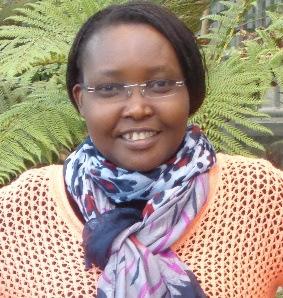
Associate Director
Dr. Eveline T. Konje
I am a biostastician and epidemiologist working with academic institution (CUHAS) for more than ten years. I have been engaged in different community-based programs such as community mobilization, health needs assessment, health promotion, and mass screening campaigns. I have been teaching undergraduate and postgraduate students for 13 years in Epidemiology and Biostatistics. Additionally, I have been supervising more than 40 undergraduate students and 18 postgraduate students working in wide range of research topics such as infectious disease, cervical cancer, quality of life, maternal depression, health care services, medical education to mention a few.
Research Policy Objectives
- To increase the productivity of quality research and publications,
- To create an enabling environment for research so as to provide equal opportunities for all researchers,
- To strengthen administration and coordination of research at the University,
- To improve a research and publications culture,
- To improve funding for research and innovations,
- To strengthen collaborative research at the University and with other Universities outside the University,
- To establish mechanisms for taking stock of research activities and their outcomes,
- To develop surveillance mechanisms to anticipate the needs for research,
- To strengthen multi-disciplinary research, and
- To define its research priorities.
Forms / Guidelines
For Undergraduate Students:
For Postgraduate Students / Researchers:
University Research Clusters
- Infectious Diseases, One-Health and AMR (antibacterial, antiviral,antifungal, antiparasitic resistance, Novel and alternative therapeutics)
- Schistosomiasis and other Neglected Tropical Diseases
- Molecular Biology, Genomics and Genetics
- Non-communicable diseases
- Advances in surgical services
- Advances in Diagnostic and Intervention Radiology
- Maternal and Child Health
- Public Health and “Big Data” Sciences
- Environment and Health
- Mental Health
- Cross-cutting issues (Medical Education and Professional Development, Medical Ethics, Technology and Innovations)
Research Funders & Collaborators
- African Network for Researchers in Neglected Tropical Diseases
- American Society of Microbiology
- Bristol Meyer Squibb Foundation
- Bugando Medical Centre
- Else Kröner-Fresenius Center for Advanced & Medical Humanitarian Studies - Würzburg
- Fleming Fund Tanzania Country Grant
- German Leprosy & Relief Association
- In2 Care - The Netherlands
- Makerere University – Grand Challenge Africa
- Ministry of Health – Tanzania
- Muhimbili University of Health & Allied Sciences
- National Institutes of Health (NIH) – USA
- National Institute for Medical Research – Tanzania
- President’s Malaria Initiative (PMI)
- University of Glasgow – UK – SNAP/AMR
- University of Manchester - UK
- University of Washington
- Vrije University – Belgium
- Würzburg Medical Mission Institute & Institute of Hygiene & Microbiology
Research & Innovation Highlights
Showcasing CUHAS initiatives driving transformation in health sciences.
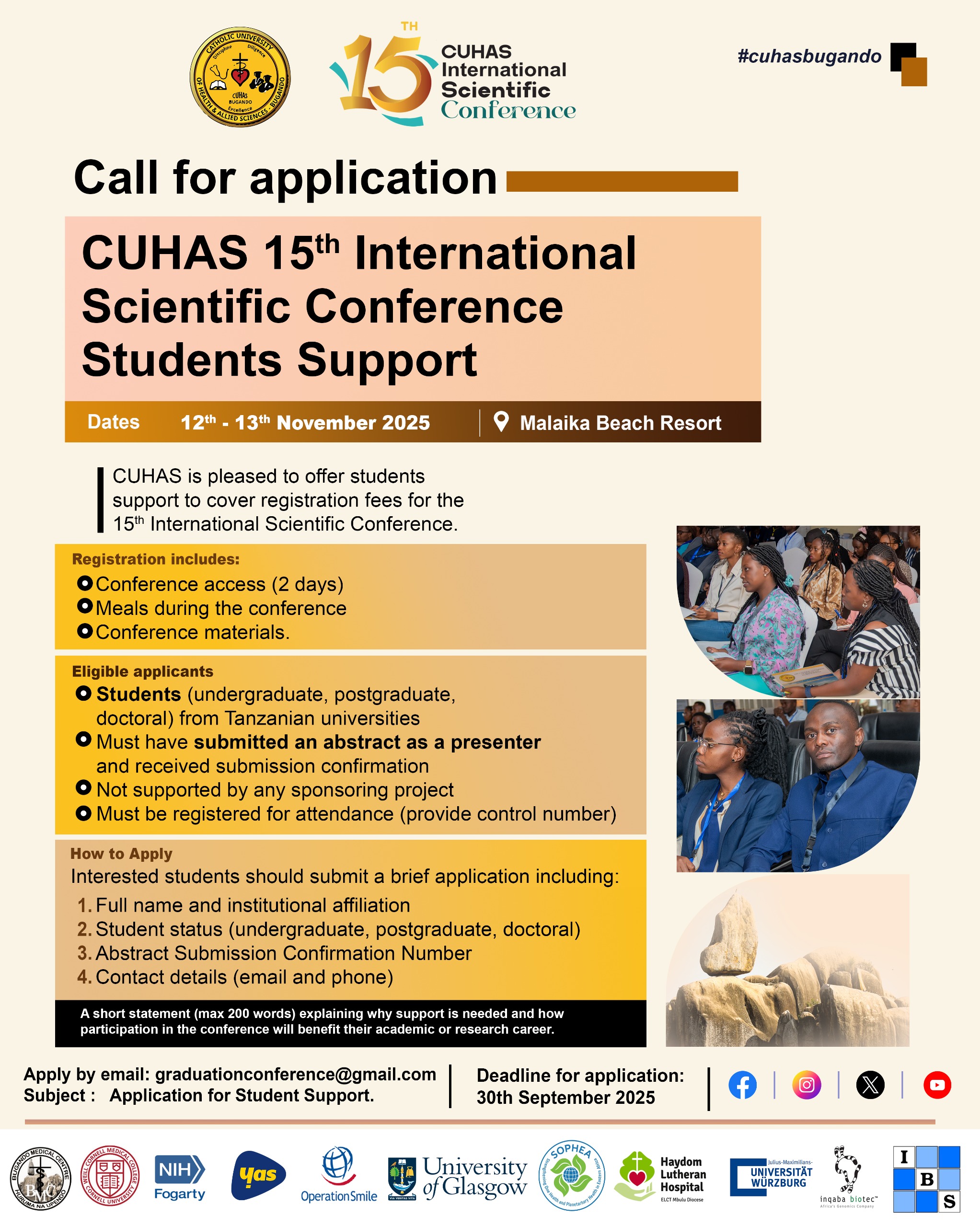
Scientific Conference - 2025
